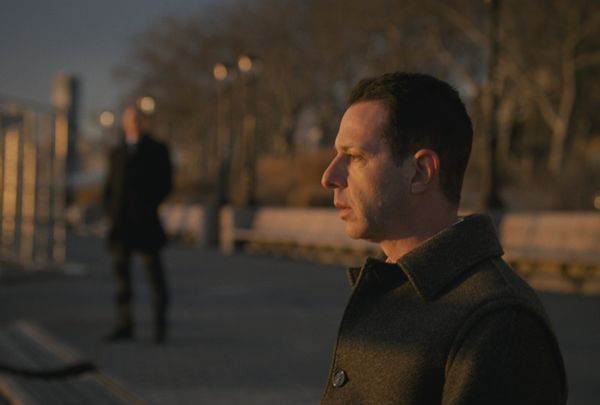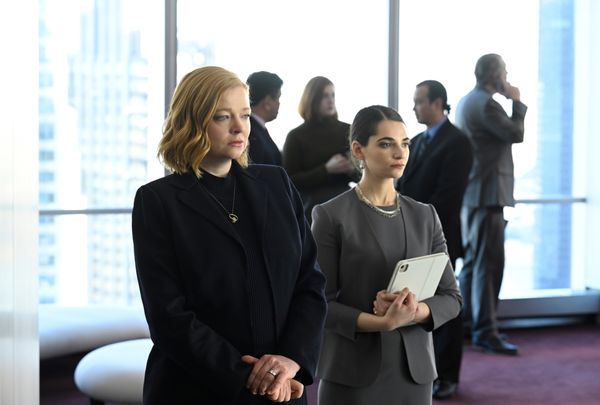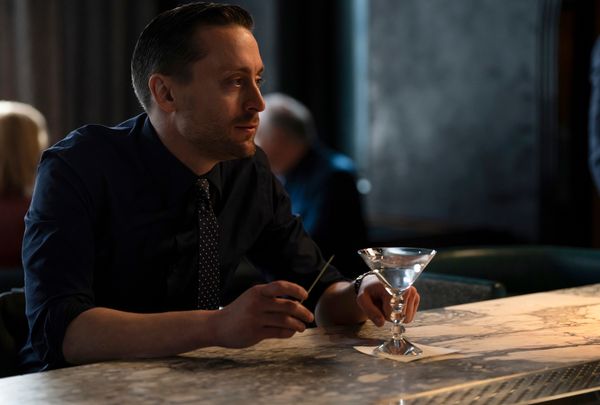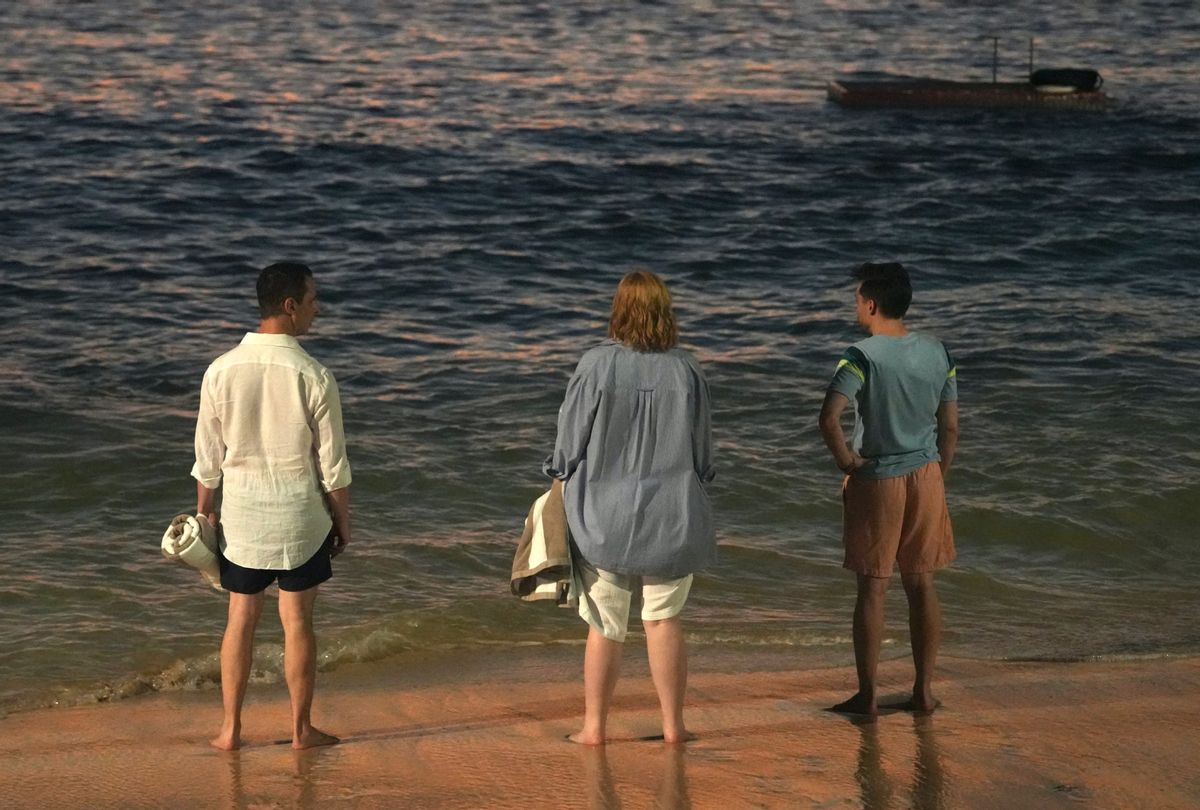"Maybe the poison drips through." This is what Kendall Roy (Jeremy Strong) tells his younger sister, Shiv (Sarah Snook) earlier this season in the now concluded HBO drama, "Succession." This sentiment perfectly encapsulates the show drenched in anxiety that resonates with a particular demographic: millennials.
As the generation most attuned to the 24-hour news cycle, millennials have constantly been overwhelmed with headlines, often feeling a loss of control.
Now that we have the full series to analyze, we can take a step back and see what the series has to say about millennial anxiety and the way the three main Roy siblings (sorry Conheads) grapple with it in a crumbling world.
Executive producer and director of the final episode Mark Mylod has made it no secret that he views the show as a tragedy. So, it should be no surprise that we get a tragic finale. In the end, no Roy sibling really wins. In Shiv's own words, "the empty f**king suit" ends up on top, i.e., her husband, Tom Wambsgans (Matthew Macfadyen). Despite a hopeful reunion in their mother's kitchen where the siblings anoint Kendall as the "king," their shared happiness is fleeting. It's the moment the siblings return to the corporate space of Waystar Royco and enter the "real world" again that the stitches come off – figuratively and literally.
"It was perfectly painful," Mylod said in the behind-the-scenes "Inside the Episode."
Indeed, it was, and the tragedy of the siblings is showcased in the rousing and emotionally stressful finale which sees each Roy's arc collide and diverge with agonizing tension. That brings us back to the show's central thesis, which seems particularly relevant to the millennial generation: What are we to do? What can we do to avoid tragedy in our own lives?
There is tremendous irony in the Roy siblings being surrounded by a news conglomerate like Waystar, given they have the power not only to disseminate the news, but make it. Millennials have lived through countless global tragedies – from 9/11 and everyday school shootings to the financial crisis and COVID – and unlike prior generations, have had an unprecedented sense of immediacy to the world around them. From access to the top breaking news story to the latest natural disaster or the most recent update on climate change, viruses, act of violence and bigotry, it's always been at our fingertips. We may not have GoJo or Vaulter, but we do have Twitter and Meta, which like "Succession's" fictitious counterparts, have been embroiled in their own controversy over leadership and misinformation.
As the generation most attuned to the 24-hour news cycle, millennials have constantly been overwhelmed with headlines, often feeling a loss of control due to the inordinate influence of past generations like the boomer generation. Which, in "Succession," is the four-season long battle between the Roy siblings and their boomer father, Logan.
 Jeremy Strong in "Succession" (HBO)The paths for dealing with these stressors are laid bare, and the results of such paths are also summed up in the finale. In each sibling's case, we see how they attempt to surpass previous generations, and what the outcomes of their decisions are.
Jeremy Strong in "Succession" (HBO)The paths for dealing with these stressors are laid bare, and the results of such paths are also summed up in the finale. In each sibling's case, we see how they attempt to surpass previous generations, and what the outcomes of their decisions are.
In Kendall's case, he chooses to follow the path already made by past generations and become the person he most detests in order to succeed. In the second season episode "This Is Not for Tears," Logan makes it clear to Kendall, "You have to be a killer," not believing that his son has the rough, Machiavellian streak necessary to lead Waystar. Ironic given that viewers have witnessed Kendall commit vehicular manslaughter and lie about it. But Kendall hears the advice and throughout the third season decides to embrace the killer within, targeting his father and Waystar with explosive testimony and calling out the past generations' bullying leadership style and apathy towards sexual misconduct allegations. There's semblances to exploiting the #MeToo movement in what Kendall does, but he attempts to utilize the controversies sparked by his father's generation to bolster his own standing, only to then do exactly as his father had done but with less conviction, which results in Kendall alienating everyone in his life.
For Roman, we see a man who collapses into political and ideological extremism. We've had recent examples of young, white men embracing radicalized beliefs often as a means to either boost their own sense of self (no surprise that Roman gloats about having the presumptive, ideologically far-right president calling him) or to find a group of people to look down on and target in order to feel better about themselves. Roman grew up in an abusive household and instead of turning to help others through their own trauma, uses his own past as a weapon against others, drawn into doing this by ideologues and his own self-interest.
 Sarah Snook in "Succession" (HBO)And then we have Shiv, who betrays her political and ideological morals for a modicum of success by proxy. Shiv has had a long history of playing both sides. At the start of "Succession" she is won over to work for a liberal presidential candidate who wants to target the Roy family business. That is, until she gets a better deal to come into Waystar. In the final season, Shiv discovers she's pregnant and within days of finding this out, she utilizes her pregnancy not only as a means to elevate the "clumsy interloper" Tom to the top, but also commits to being an absentee mother, nullifying the perceived risks of motherhood and dooming her child to a potentially "emotionally stunted" upbringing like the one she experienced. Prior to her own pregnancy, Shiv expressed little interest in having children, a growing sentiment among millennials, but the allure of using this to her advantage and to become a Lady Macbeth-type figure – "Macbeth" being directly referenced in the finale – is too much to resist.
Sarah Snook in "Succession" (HBO)And then we have Shiv, who betrays her political and ideological morals for a modicum of success by proxy. Shiv has had a long history of playing both sides. At the start of "Succession" she is won over to work for a liberal presidential candidate who wants to target the Roy family business. That is, until she gets a better deal to come into Waystar. In the final season, Shiv discovers she's pregnant and within days of finding this out, she utilizes her pregnancy not only as a means to elevate the "clumsy interloper" Tom to the top, but also commits to being an absentee mother, nullifying the perceived risks of motherhood and dooming her child to a potentially "emotionally stunted" upbringing like the one she experienced. Prior to her own pregnancy, Shiv expressed little interest in having children, a growing sentiment among millennials, but the allure of using this to her advantage and to become a Lady Macbeth-type figure – "Macbeth" being directly referenced in the finale – is too much to resist.
This brings us back to the primary question: What can we millennials do? If we are to avoid the tragedies experienced by the Roys — ensconced in the world of news, breaking notifications and a crumbling world perpetuated by the scions of the past — we cannot sink. Each of the siblings in their own ways sank in order to rise. It did not work for any of them. Sure, Shiv may have some "power" through Tom as the American CEO, but at what cost? Her lifelong unhappiness with a man who has betrayed her countless times and whom she had never truly loved? Meanwhile Kendall has become, in every sense of the word, purposeless now that the competition has finished and he has lost.
Want a daily wrap-up of all the news and commentary Salon has to offer? Subscribe to our morning newsletter, Crash Course.
"I don't think he (Logan) wanted to give it to any of us," Roman says in the finale. Which is probably true as the entire impetus of the show is Logan deciding he will stay on as CEO for five, maybe 10 more years. All to stop the rise of a new generation. But then, what is that new generation meant to do instead? The seemingly diabolical path is the most appealing, but it will assuredly result in tragedy.
 Kieran Culkin in "Succession" (HBO)There have been plenty of connections between "Succession" and other tragedies like "King Lear" and "Oedipus Rex," but few have compared the show with another tragedy of sorts: Faust. Originally a German legend, the story became more popularized thanks to Christopher Marlow's "Doctor Faustus" in which the titular doctor signs a contract with the demon Mephistopheles, a servant of Lucifer's, to extend his life so he can learn more about magic. As evidenced by not only the finale, but also Logan's death in "Connor's Wedding," we have seen that no matter the price one pays for extending their time on earth, no matter the sacrifices one makes on their quest for knowledge or power, our time will eventually come. It's just a matter of whether we're willing to sign a contract with the devil for just a bit more time. Therein lies the anxiety so many of us face and what the Roy siblings had to decide: to sign the contract or not.
Kieran Culkin in "Succession" (HBO)There have been plenty of connections between "Succession" and other tragedies like "King Lear" and "Oedipus Rex," but few have compared the show with another tragedy of sorts: Faust. Originally a German legend, the story became more popularized thanks to Christopher Marlow's "Doctor Faustus" in which the titular doctor signs a contract with the demon Mephistopheles, a servant of Lucifer's, to extend his life so he can learn more about magic. As evidenced by not only the finale, but also Logan's death in "Connor's Wedding," we have seen that no matter the price one pays for extending their time on earth, no matter the sacrifices one makes on their quest for knowledge or power, our time will eventually come. It's just a matter of whether we're willing to sign a contract with the devil for just a bit more time. Therein lies the anxiety so many of us face and what the Roy siblings had to decide: to sign the contract or not.
So if "Succession" teaches us one thing as a generation of amplified anxiety, it's this: don't sign the f**king contract.

Shares